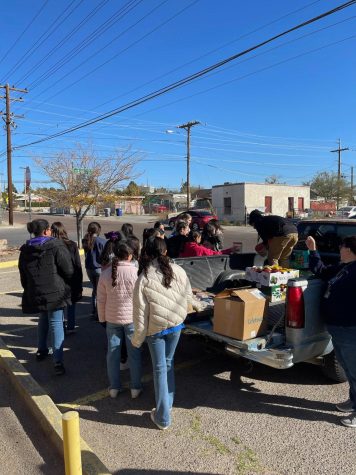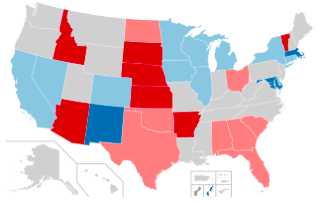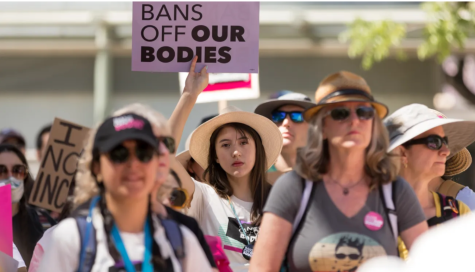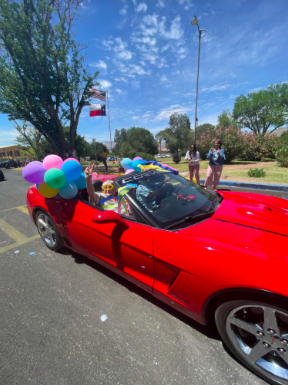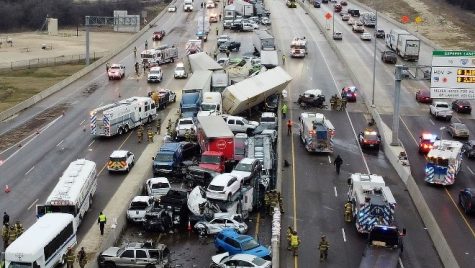Recycle today for a better tomorrow
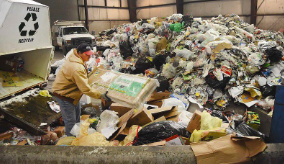
A recycling center in Raleigh, NC sorts tons of waste to be processed based on its recyclability and sent to be repurposed. Education systems should encourage students to learn the importance of recycling and practice it at home and at school. Photo courtesy of Wake County Government.
February 13, 2023
In recent years, climate change has become a prevalent issue up for discussion, and recycling is a cost-effective solution that reduces pollution, conserves natural resources, and limits toxic waste.
According to National Geographic, billions of tons of waste are dumped in landfills and can take up to thousands of years to decompose, which pollutes the environment.
Animals who stumble upon this waste can die from the toxic chemicals, and plant growth can be stunted due to the toxicity as well.
According to the University of Colorado Boulder, landfills alone in the United States are the third largest emitters of methane, a greenhouse that is 34 times as potent as carbon dioxide.
The target audience to practice recycling is aimed at Gen Z because we are the ones who will be upholding the environment for future generations.
As a member of Gen Z, I call on my peers to do what’s right and recycle waste before it pollutes the environment.
Like many, I see Greta Thunberg as an inspiration and her words encourage other members of Gen Z to fight climate change.
At a young age, Thunberg started speaking out against higher powers who contributed to mass pollution, which showed me how we can stand up for our world to take action against the current climate crisis.
Recycle, reuse, reduce
The process of recycling is straightforward and starts with sorting waste into colored bins that store plastic, paper, and metal items to be transformed into reusable materials.
After these bins are picked up curbside, they are brought to a recycling facility to be grouped, washed, processed, and ready for remanufacturing.
I believe recycling can make the difference we need to reduce air and water pollution in a way that lets all members of a household get involved.
If we made recycling a staple in our routines, 1.17 million jobs would be generated for every 1,000 tons of recycled waste.
According to the United States Environmental Protection Agency (EPA), by recycling just one ton of paper, we could save over 7,000 gallons of water and 4,000 kilowatts of energy.
Just to put that number into perspective, that amount of energy is able to run a house for a period of almost six months.
Recycling stirs confusion
The argument of many Americans who do not recycle is that they are confused about which items are recyclable and where to dispose of them for remanufacturing.
I understand why recycling is viewed as a difficult feat but I also believe people aren’t actively trying to improve our low recycling rate or understand the difference between what goes in each colored bin.
From firsthand experience, I can recount times of frustration when my recycling wasn’t picked up due to bin contamination.
However, my response was to learn how to recycle the right way to preserve the environment and make sure the problem never came up again.
There are many resources that are government-approved that break down how to recycle and the benefits we gain from that.
Get school community involved
The phrase “recycle, reuse, reduce” shouldn’t just be plastered across school hallways, but put into effect at home.
The lack of knowledge on recycling, calls me to wonder why the topic is not promoted in school.
Schools should serve as a leading force in the community by recycling on a grand scale.
I find it hard to believe how up to 80% of school waste is recyclable, yet 60% of that waste makes its way to landfills.
Materials such as plastic, paper, and cardboard are used on a daily basis in schools and should make their way to a recycling facility instead.
Schools should implement recycling programs in their curriculums to teach students about their responsibility to contribute to our country’s environmental and economical state in a positive way.
Children are the changemakers of the future and given the tools, should take action against climate change and encourage others to hop on the bandwagon.
Local impact
El Paso’s Environmental Services Department (ESD) makes a conscious effort to bring our community together to educate and fix the bin contamination problem.
In 2021, ESD launched a Recycling Challenge to test residents’ knowledge of recycling by earning black belts if they successfully completed two recycling quizzes.
This was an interactive and effective way to drill some of this information to resolve the contamination rate which was a whopping 32%, marking an all-time high for El Paso.
Refuse to recycle creates risks
If as a community we don’t make an effort to recycle, the harmful effects on the environment will continue to persist.
Landfills would carry more waste than they are designed to, which would heavily pollute the air by the smell of the harsh chemicals many items have and lead to the end of fossil fuels.
The effects would harm not only land but also marine life when a large portion of plastic affects animal habitats and well-being.
Without recycling, the economy would take a turn for the worst as well when millions of people would become unemployed.
Recycling can make a huge impact in limiting the continual growth of climate change by protecting the use of raw materials and reducing carbon dioxide emissions.
To help fix the problem, go to your local environment facility to educate yourself and think twice before disposing of trash in the wrong bin.
Don’t hesitate to share this information and do the right thing when you see climate injustice to keep pushing our community forward.
I stand for implementing recycling in our day-to-day lives and I believe even a slight difference can go a long way over time.
It is up to us, not to blame our elders for not doing their part and make it a mission to do ours.
To combat climate change, we need to unite in wanting to make an effort towards a sustainable future and making choices that make the planet “green”.







